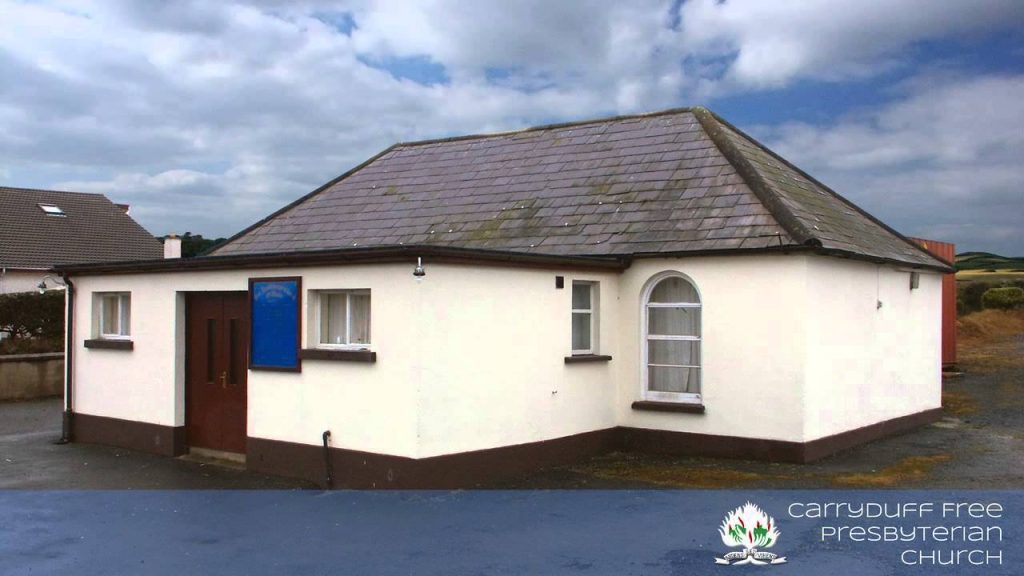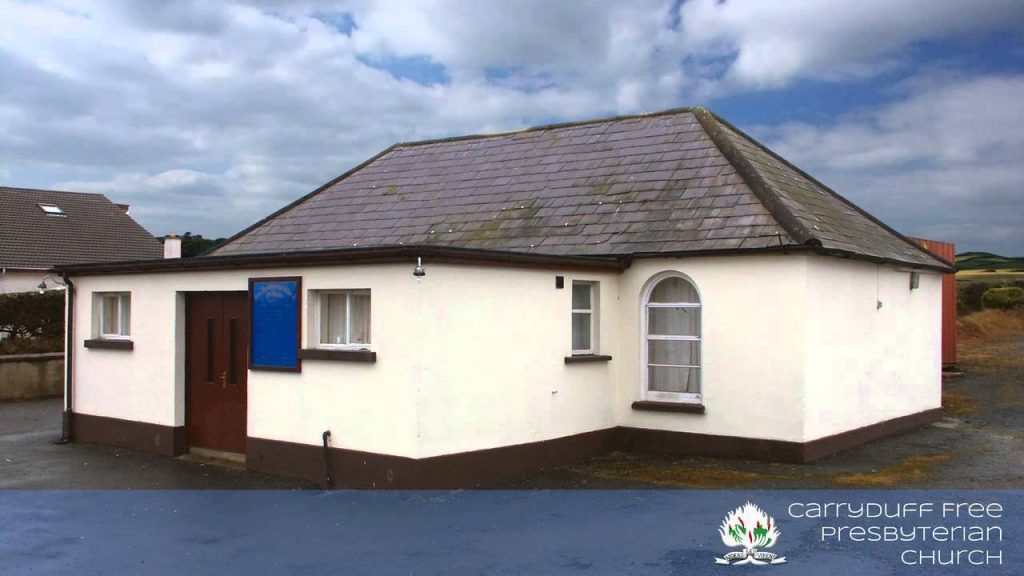Date: SUN 7:00pm 24th August 2025
Preacher: Rev. David McLaughlin
Bible Reference: 2 Kings 25:28
And he spake kindly to him, and set his throne above the throne of the kings that were with him in Babylon;
Sermon Summary: The Redemption of Rebellious Jehoiachin
Text: 2 Kings 25:27–30
Subject: The Redemption of Rebellious Jehoiachin
Date and Context: The sermon draws from a short passage in 2 Kings 25, focusing on the life of Jehoiachin, a king of Judah, to illustrate themes of sin, captivity, and divine redemption through the lens of God’s grace.
Introduction
The sermon begins with a reading from 2 Kings 25:27–30, which recounts the release of King Jehoiachin from 37 years of captivity in Babylon under a new king, Evil-Merodach. The preacher frames this passage as a story of redemption, using Jehoiachin’s life to parallel the spiritual journey from sin to salvation through God’s grace. The sermon is structured around three main points: the particulars of Jehoiachin’s depravity, the proclamation of his deliverance, and the portrait of his delight.
1. The Particulars of Jehoiachin’s Depravity
The preacher provides historical context for Jehoiachin, a king of Judah who was the grandson of the godly King Josiah and son of the wicked King Jehoiakim. Jehoiachin followed in his father’s sinful footsteps, doing “evil in the sight of the Lord” (2 Kings 24:9). Key details about his life include:
- Early Life and Reign: Jehoiachin was appointed co-regent at age eight, reigning alongside his father for ten years. At 18, he ascended the throne but ruled for only three months and ten days (2 Kings 24:8; 2 Chronicles 36:9). The preacher addresses an apparent discrepancy in Scripture regarding his age, clarifying that Jehoiachin was eight when appointed co-regent and 18 when he became sole king, dismissing claims of biblical error.
- Sin and Rebellion: Jehoiachin’s sins mirrored his father’s, including rebellion against King Nebuchadnezzar of Babylon, to whom Judah was subject. This act of treason led to Jerusalem’s siege and Jehoiachin’s surrender. Consequently, he was imprisoned in Babylon for 37 years, from age 18 to 55. The preacher highlights the severity of this punishment, describing it as a “double life sentence” without modern comforts, underscoring the consequences of sin.
- Moral and Spiritual Failure: Jehoiachin’s father, Jehoiakim, desecrated God’s Word by burning a scroll containing God’s law (Jeremiah 36:22–24), showing no fear of God. Jehoiachin likely adopted this irreverence, contributing to his moral depravity. The preacher suggests Jehoiachin may have been complicit in his father’s violent acts, such as shedding innocent blood (2 Kings 24:4), which God would not pardon.
- Universal Application: The preacher connects Jehoiachin’s story to the human condition, citing Romans 3:23 (“all have sinned and come short of the glory of God”) and Romans 5:12 (sin entered through Adam). He explains that humanity inherits both guilt and a sinful nature from Adam, leading to a “bad record” and a “bad heart” that loves sin. Sin’s consequences are likened to Jehoiachin’s imprisonment, ruining lives and leading to spiritual bondage.
- Call to Reflection: The congregation is challenged to examine their attitude toward God’s Word, the shedding of innocent blood, and treason against God. The preacher asks whether they fear sin’s consequences and are willing to repent, drawing parallels to the prodigal son who confessed his sin (Luke 15:21).
2. The Proclamation of His Deliverance
The sermon shifts to Jehoiachin’s release from prison, emphasizing the grace of King Evil-Merodach, who spoke kindly to him, freed him, and elevated him above other vassal kings (2 Kings 25:28). This act of mercy is presented as a picture of God’s grace in Christ:
- Unmerited Grace: Jehoiachin did not earn or deserve his freedom; it was a royal pardon granted freely by the new king. Similarly, Jesus, the King of kings, offers spiritual freedom to sinners bound by sin, as described in Luke 4:18 (“to preach the gospel to the poor”) and John 8:32, 36 (“the truth shall make you free… if the Son therefore shall make you free, ye shall be free indeed”).
- Spiritual Liberation: The preacher contrasts physical imprisonment with spiritual bondage to sin and Satan. Jesus’ mission is to set captives free, not from literal jails but from the dominion of sin. The hymn “And Can It Be” is referenced to illustrate this liberation: “My chains fell off, my heart was free.”
- Awakening to Sin: The preacher warns that those dead in sin (Ephesians 2:1) feel no conviction until the Holy Spirit regenerates them, making them aware of their depravity. He urges the congregation to listen to Jesus’ words of grace and liberty, which offer forgiveness and peace (Romans 5:1; Romans 8:1).
3. The Portrait of His Delight
The sermon concludes by detailing the blessings Jehoiachin received upon his release, portraying them as a foreshadowing of the spiritual blessings believers receive in Christ:
- Royal Pardon: Jehoiachin was forgiven and freed, mirroring God’s forgiveness of sins through Christ’s blood (Ephesians 1:7; Isaiah 43:25). The preacher cites Psalm 130:3–4, emphasizing that God’s forgiveness inspires reverence. Sin is described as “carried away, covered, and cancelled” through Christ’s atoning work.
- Royal Position: Jehoiachin was elevated to a throne above other kings, symbolizing the believer’s position in Christ. Ephesians 2:6 states that believers are “raised up together, and made to sit together in heavenly places in Christ Jesus.” This elevation is a privilege, moving the sinner from the prison of sin to the palace of God’s presence.
- Royal Provision: Jehoiachin’s prison garments were replaced with royal robes, reflecting the believer’s clothing in Christ’s righteousness (Isaiah 61:10). Jesus’ perfect obedience and atoning death provide a “robe of righteousness” that covers the believer’s sin, presenting them as righteous before God.
- Royal Portion: Jehoiachin ate continually at the king’s table (2 Kings 25:29), symbolizing the spiritual nourishment believers receive from Christ, the “bread of life” (John 6:35; Matthew 4:4). The preacher references an archaeological find—a cuneiform tablet from Babylon listing Jehoiachin’s rations—validating the biblical account. Believers are invited to feed on God’s Word daily for spiritual sustenance.
- Royal Peace: Jehoiachin received a continual allowance, ensuring his needs were met for life (2 Kings 25:30). This represents the peace and security believers find in Christ, who supplies all needs (Philippians 4:19) and grants “perfect peace” to those who trust in Him (Isaiah 26:3). The preacher quotes Psalm 23:6 to affirm God’s ongoing provision and mercy.
Conclusion and Application
The sermon closes with a call to respond to Christ’s offer of salvation. The preacher urges the congregation to come to Jesus, confess their sins, and crown Him as Lord, Prophet, Priest, and King. He emphasizes the deity and redemptive work of Christ, warning that one cannot accept a partial Christ but must embrace Him fully. The blessings Jehoiachin received—pardon, position, provision, portion, and peace—are available to all who trust in Jesus. The sermon ends with a prayer that God will apply this message to the listeners, leading them to experience the redemption exemplified in Jehoiachin’s story.
Key Themes
- Sin’s Consequences: Jehoiachin’s 37-year imprisonment illustrates how sin leads to bondage and ruin, a warning for all to take sin seriously.
- God’s Grace: Evil-Merodach’s kindness to Jehoiachin mirrors Christ’s unmerited grace, offering forgiveness and freedom to sinners.
- Spiritual Blessings: The believer’s salvation includes forgiveness, a new status in Christ, righteousness, spiritual nourishment, and peace.
- Call to Repentance: The sermon challenges listeners to acknowledge their sin, repent, and trust in Christ for salvation.
Subscribe to the podcast here:
Spotify Podcasts | Apple Podcasts | Pocket Casts
Email | RSS | more information here




